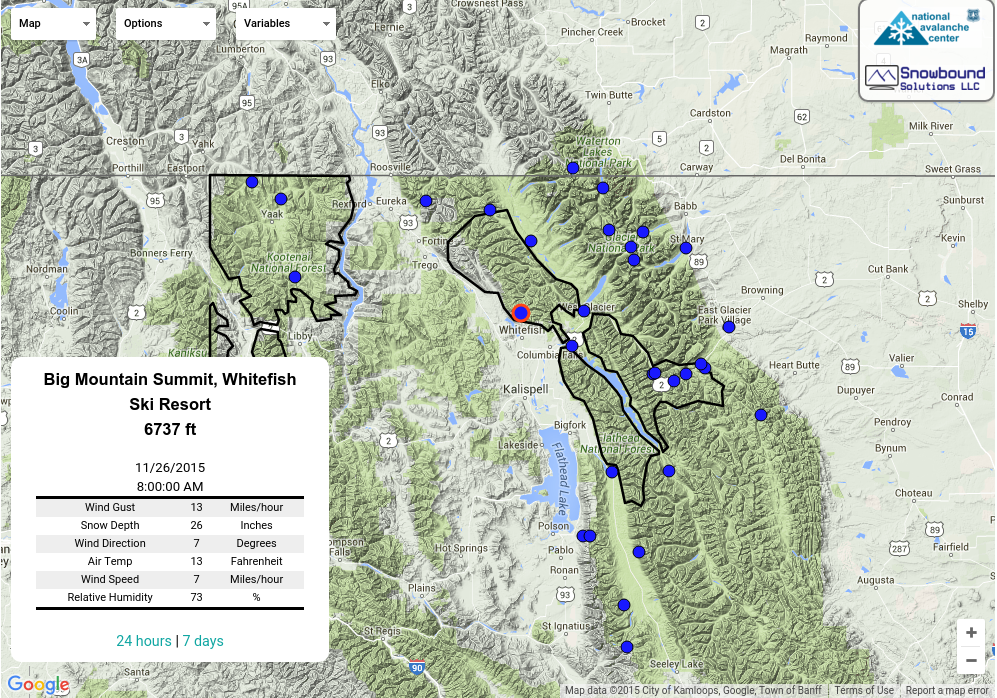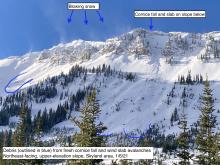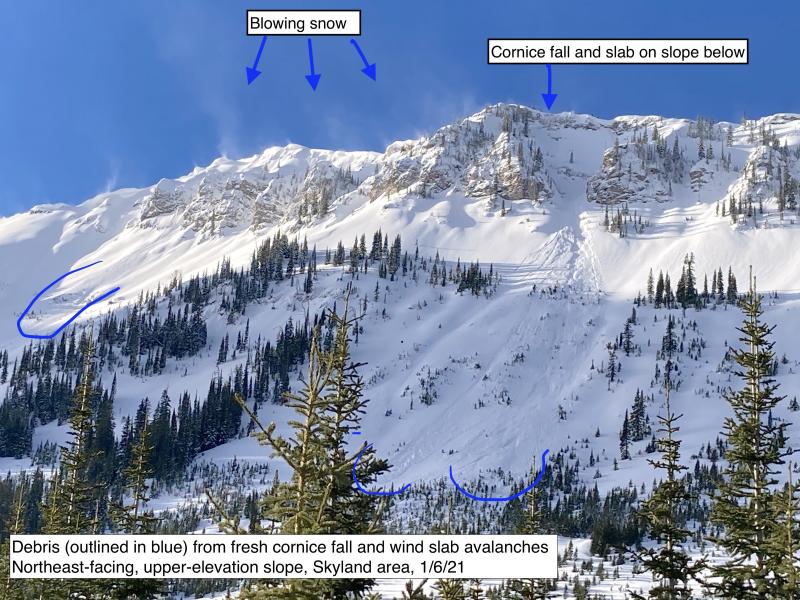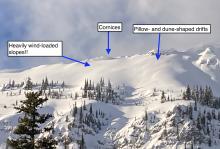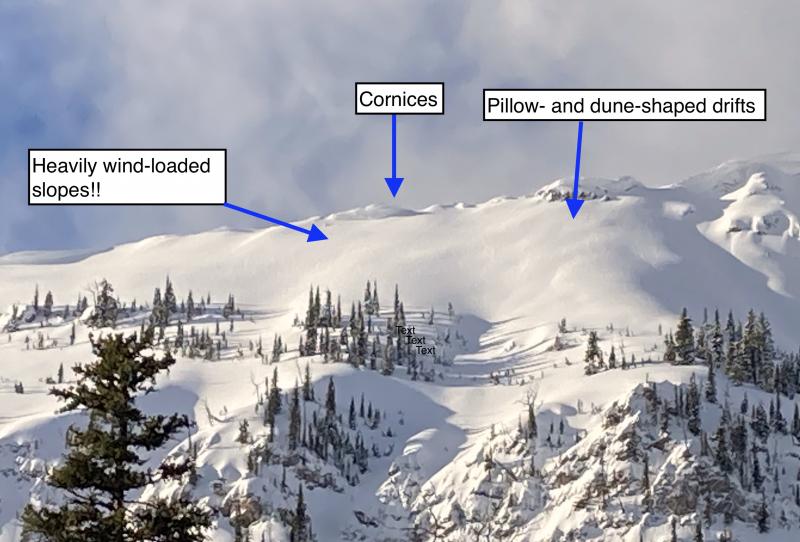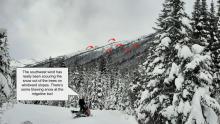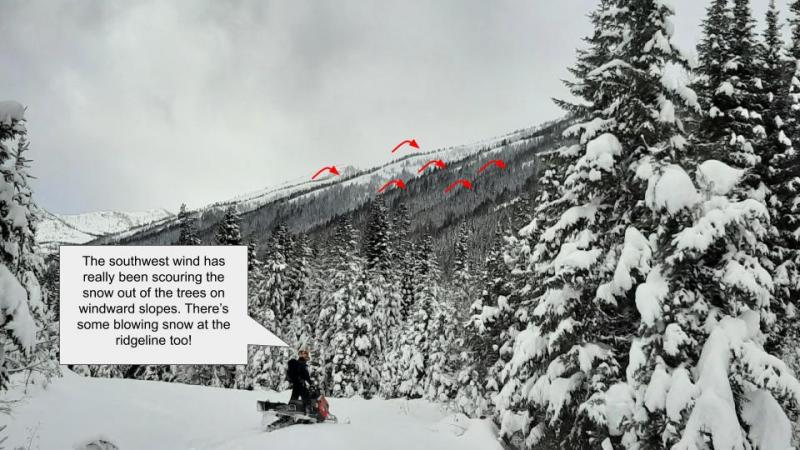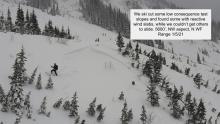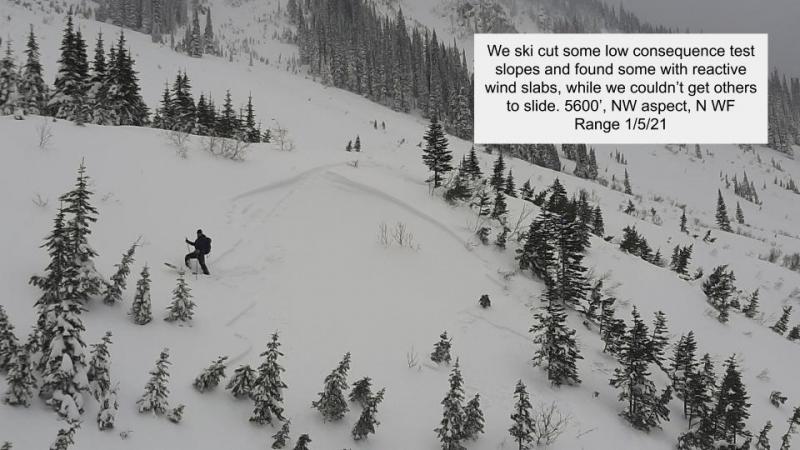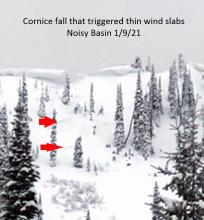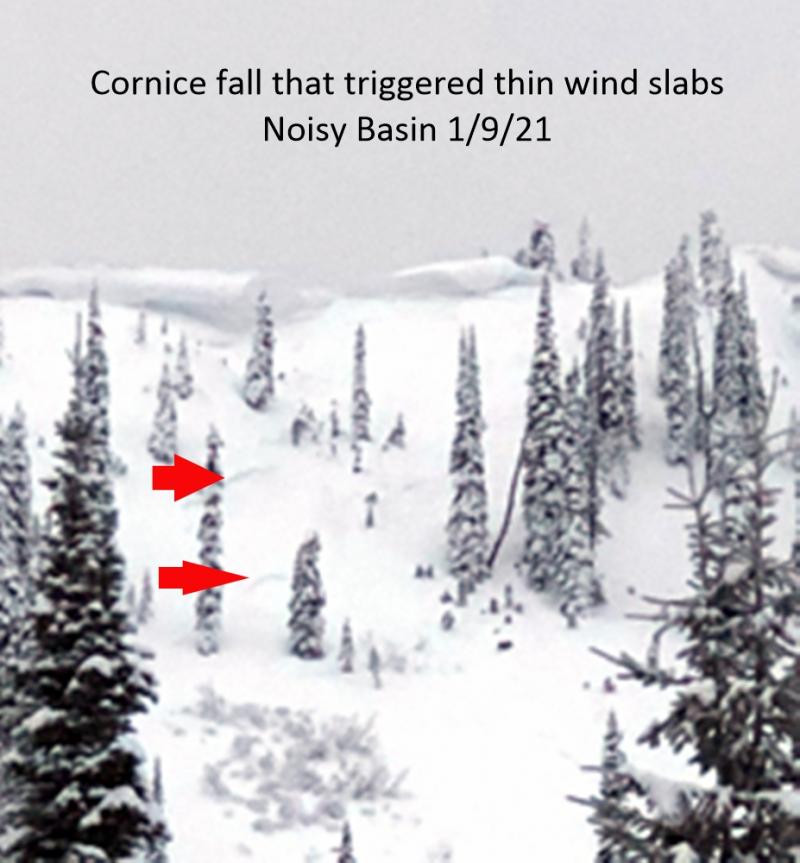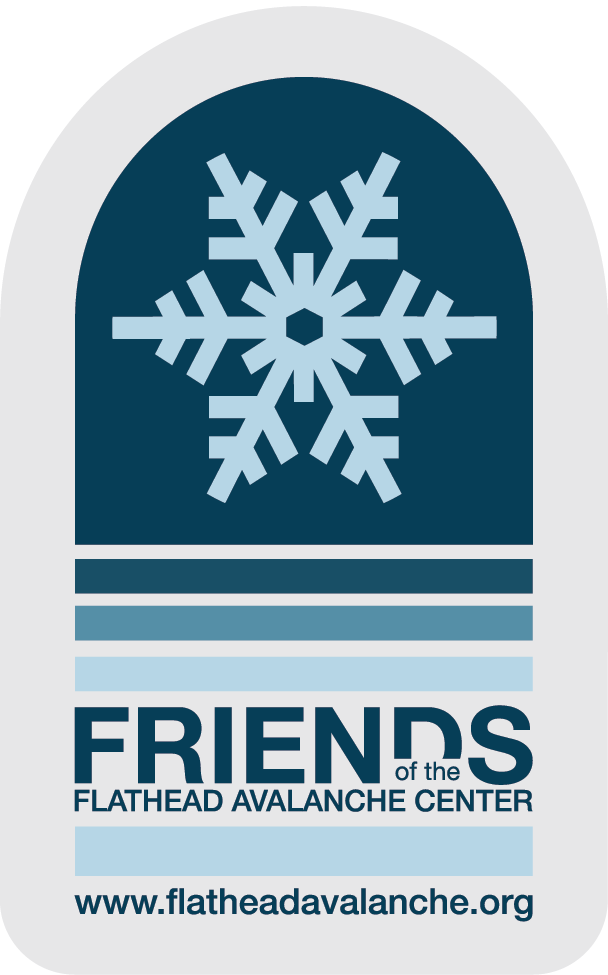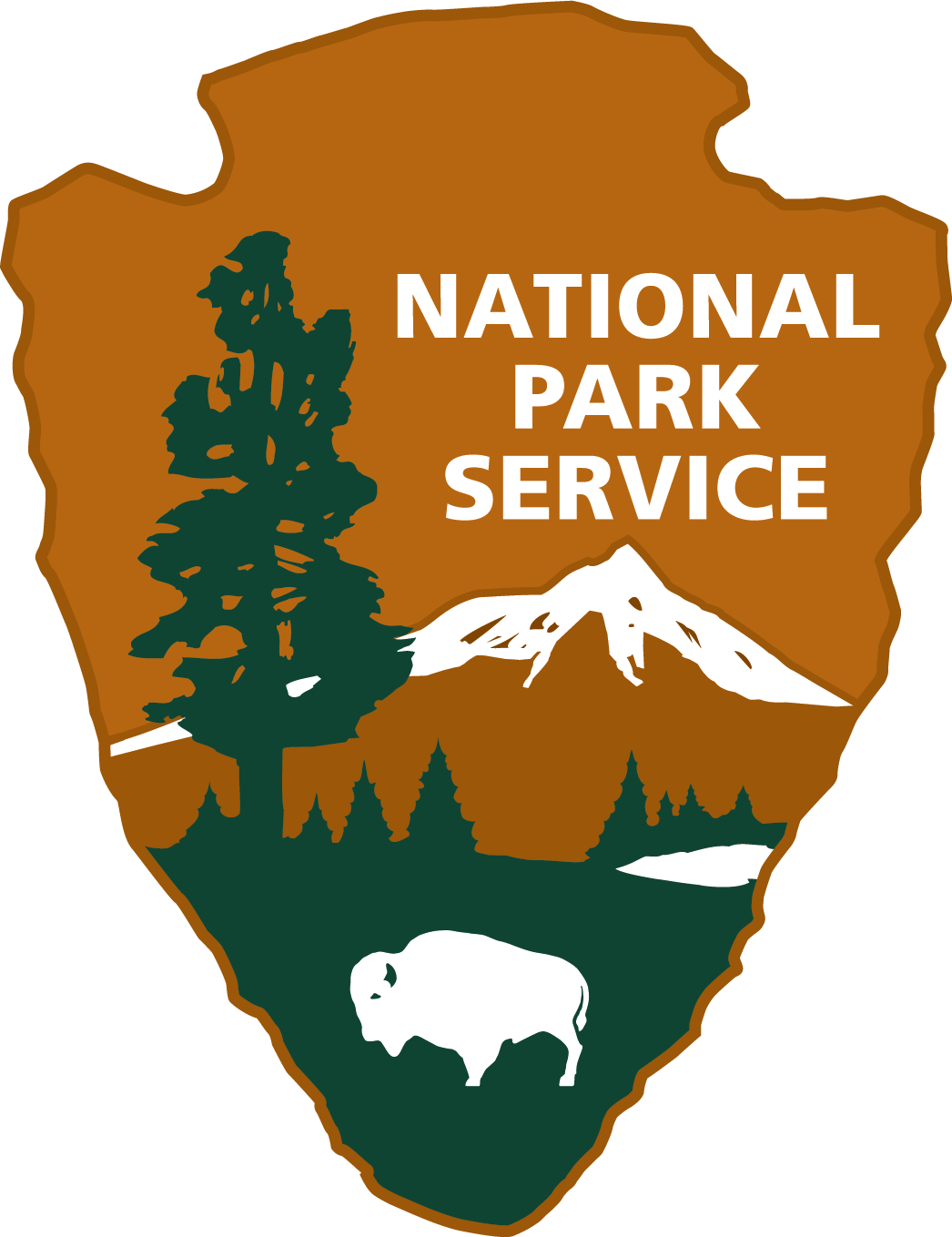| Tuesday | Tuesday Night | Wednesday | |
|---|---|---|---|
| Cloud Cover: | Mostly cloudy with snow | Snow showers decreasing | Mostly cloudy and turning colder |
| Temperatures: | 29 to 38 deg. F. | 18 to 26 deg. F. | 24 to 34 deg. F. |
| Wind Direction: | southwest | west-southwest | southwest |
| Wind Speed: | 7-10 with gusts to 20 mph | 6-9 with gusts to 20 mph | 7-9 mph |
| Snowfall: | 2-5 in. | 2-4 in. | 2-3 in. |
| Snow Line: |
Whitefish Range
Swan Range
Flathead Range and Glacier National Park
How to read the forecast
The avalanche danger is MODERATE above 6000 feet where human triggered avalanches remain possible. Recent snowfall and winds formed fresh wind slabs at upper elevations. Additional snow and winds are in the forecast today. Evaluate all wind loaded terrain before committing to a slope. The danger is LOW below 6000 feet. LOW danger does not mean NO danger. Continue to use normal caution and look for signs of unstable snow such as recent avalanche activity.
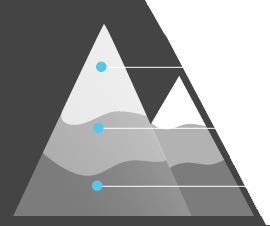
2. Moderate
?
Above 6500 ft.
1. Low
?
5000-6500 ft.
1. Low
?
3500-5000 ft.
- 1. Low
- 2. Moderate
- 3. Considerable
- 4. High
- 5. Extreme
-
Type ?
-
Aspect/Elevation ?

-
Likelihood ?CertainVery LikelyLikelyPossible
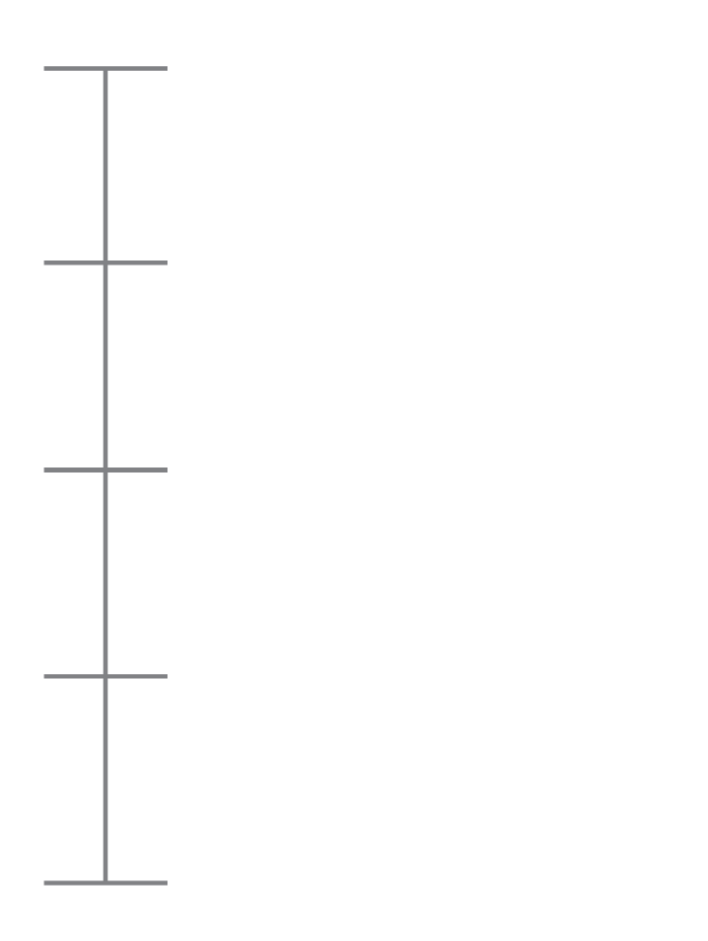 Unlikely
Unlikely -
Size ?HistoricVery LargeLargeSmall

Over the past 24 hours the advisory area picked up another 3-5 inches of new snow. This was accompanied by west to southwest winds that were strong enough to transport this new snow and create fresh wind slabs. Older wind slabs formed over the weekend may still need more time to strengthen. Wind slabs are more likely to be found on easterly and northerly aspects and at elevations above 6000 feet. In some locations these slabs were deposited onto a rain crust which could make for a more slippery bed surface. Rounded pillows near ridgelines is a tell tale sign of a wind slab. Carefully evaluate all wind loaded slopes and avoid avalanche terrain if you see signs of unstable snow such as cracks shooting out from under your skis or sled.
We have not observed or been informed of any avalanches occurring on the January 19th crust or any other persistent weak layer in almost two weeks. However, in some places stability tests are still showing reactive results around the January 19 crust and, in isolated locations, the depth hoar at the base of the snowpack is reactive as well. Even though these layers have not produced any avalanches lately, it is still important to be aware that in some locations in the advisory area there is a poor snowpack structure with buried weak layers that may still be reactive. Because these weak layers do not always present obvious signs of instability, digging into the snowpack is the best way to determine their location and reactivity. Also you are more likely to find and/or trigger one of these weak layers in steep rocky terrain that typically has a more shallow snowpack.
Monday: Guy and Jenny were in Doris Creek in the Swan Range. They found about 20 inches of snow above the most recent rain crust. In a snow pit at 6300 feet on an east aspect they had fractures within the most recent storm snow but no propagation. They did not observe any recent avalanche activity. BNSF Avalanche Safety was out in John F Stevens Canyon in southern Glacier Park. They observed no avalanche activity, no wind-loading, and no propagation in a snowpit at 6400 feet on a south aspect.
Sunday: Zachtern was in Rescue Creek in the Flathead Range. He noticed some minor cracking in the latest storm snow but did not observe any slab avalanches. In a snow pit at 6300 feet on NE aspect he found about 16 inches of snow above the Feb 10 crust. No propagation occurred in his stability test.
See below for all observations this season.
Above 6000 feet another 3-5 inches of snow accumulated over the past 24 hours. West to southwest winds have been light to moderate with moderate to strong gusts. Currently temperatures range from 23-33°F. Wind speeds have decreased from last night and at 0600 were blowing out of the west-southwest at 3-14 mph with gusts of 7-18 mph. Today we can expect another 2-6 inches of snow with the Swan Range being favored for higher accumulations. Temperatures will reach the high-20s to low-30s ºF above 6000 feet and into the upper 30s ºF at elevations below this. Light southwest winds with moderate gusts will continue through the day.
| 0600 temperature: | 23 to 30 deg. F. |
| Max. temperature in the last 24 hours: | 27 to 35 deg. F. |
| Average wind direction during the last 24 hours: | southwest |
| Average wind speed during the last 24 hours: | 2-35 mph |
| Maximum wind gust in the last 24 hours: | 4-49 mph |
| New snowfall in the last 24 hours: | 3-5 inches |
| Total snow depth: | 79-108 inches |
This advisory applies only to backcountry areas outside established ski area boundaries. This advisory describes general avalanche conditions and local variations always occur. This advisory expires at midnight on the posted day unless otherwise noted. The information in this advisory is provided by the USDA Forest Service who is solely responsible for its content.

